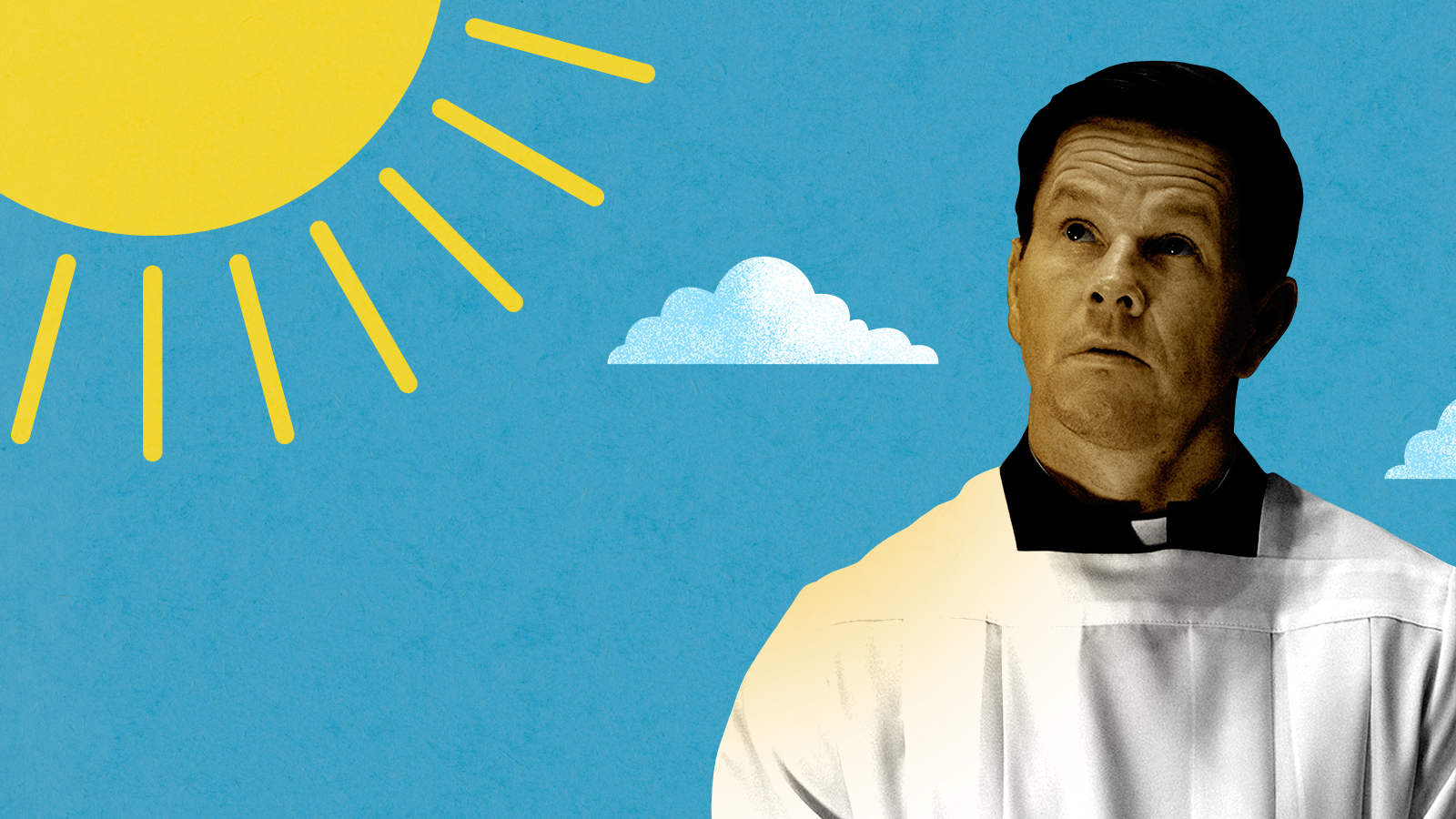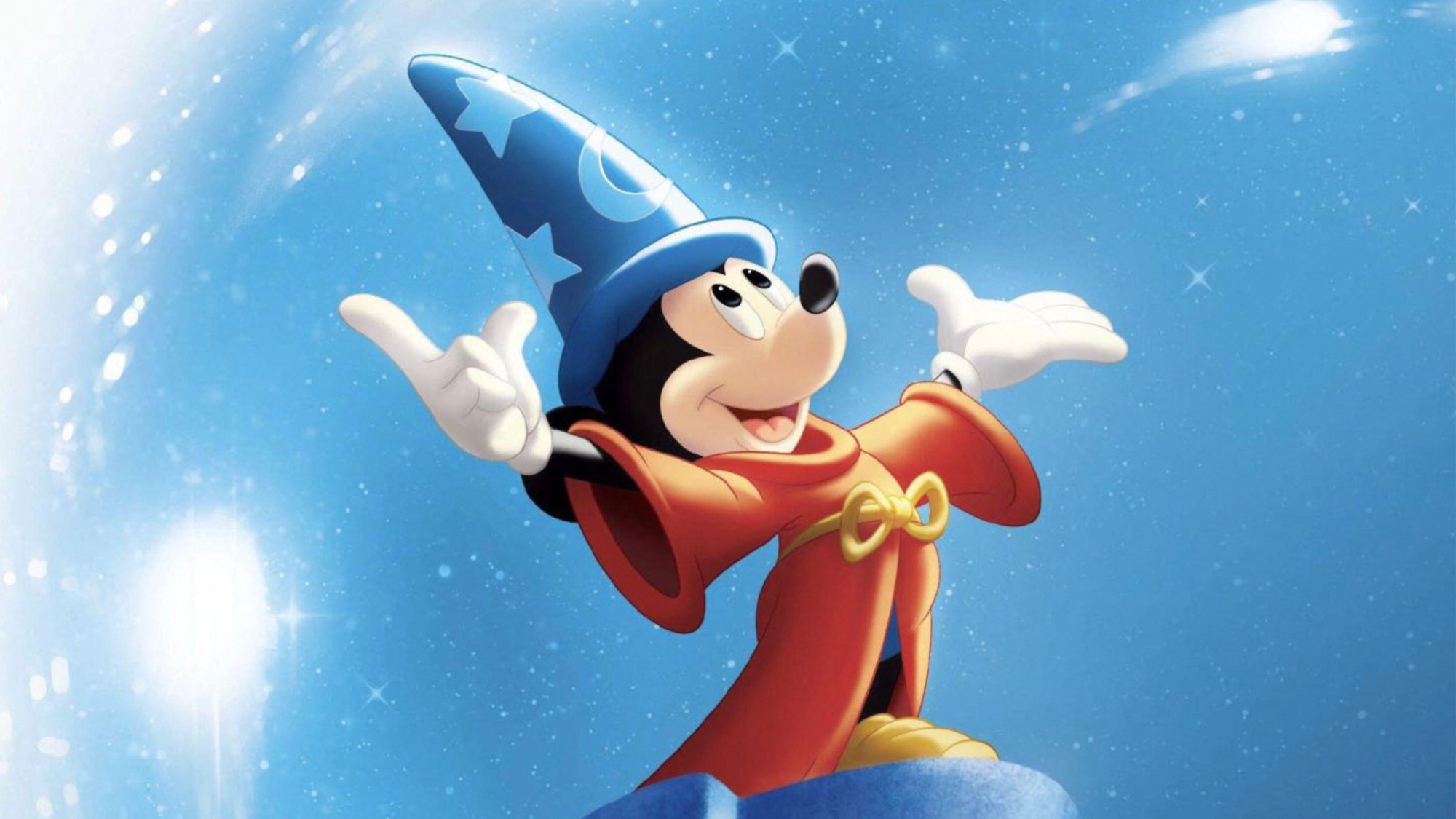Mark Wahlberg and Mel Gibson seek redemption in Father Stu
The film's disgraced stars complicate its Catholic-movie absolution


A free daily email with the biggest news stories of the day – and the best features from TheWeek.com
You are now subscribed
Your newsletter sign-up was successful
Father Stu is a rarity in the world of faith-based cinema.
Not in every way, mind you. It's still full of characters who serve a story of religious conversion, rather than feel genuinely alive and engaging. It's still dogmatic, and dramatically inert as a result. But unlike the evangelical (and intensely miracle-based) focus of movies like Heaven Is For Real, Miracles From Heaven, or Breakthrough, it's about the more explicitly codified traditions of Catholicism. And unlike the B- and C-list casts of even the higher-profile Christian releases, Father Stu features two extremely famous movie stars who also happen to be two of the film industry's most prominent Catholics: star and producer Mark Wahlberg, with a disgraced-but-not-gone Mel Gibson in a supporting role.
Wahlberg is easily one of the biggest stars to ever topline a modern faith-based picture, and Father Stu fits with his predilection for playing characters based on real people, which he has done at least half a dozen times. Hewing even closer to his profile, Stuart Long was a boxer (like Wahlberg in The Fighter) and, in the film's telling, a youthful miscreant (like Wahlberg in real life) who unexpectedly became a Catholic priest later in life.
The Week
Escape your echo chamber. Get the facts behind the news, plus analysis from multiple perspectives.

Sign up for The Week's Free Newsletters
From our morning news briefing to a weekly Good News Newsletter, get the best of The Week delivered directly to your inbox.
From our morning news briefing to a weekly Good News Newsletter, get the best of The Week delivered directly to your inbox.
Wahlberg committed multiple acts of violent and often racially motivated assault as a teenager and young man, and is obviously attracted to redemption stories. As far back as Boogie Nights in 1997 and the far less high-minded The Big Hit in 1998, he's been trying to reconcile his characters' sins with a dose of unexpected innocence and sensitivity. It seems like at some point, this more allusive approach to Catholicism was not enough for his faith; he's even spoken, possibly jokingly, about seeking God's forgiveness over the sexually explicit (though hardly deviant) Boogie Nights. Hence a movie like Father Stu, where Wahlberg is supposed to use his movie-star charisma to make Stu's cocksure-yet-wounded carousing likable, then use his family-man gravitas to convince us that this man is repentant — and struggling manfully with his newfound faith when he's diagnosed with a rare and incurable muscle disease.
This might seem like a break from the movie-star self-aggrandizement Wahlberg has assumed in some recent films, where he's no longer content to merely play the irritable yet noble hero, instead gravitating toward characters who are supposed to be in possession of superhuman-level strengths of mind and/or body (see Mile 22, Uncharted, and Spenser Confidential for some particularly egregious examples). Yet there's still some movie-star preening in this more pious vehicle. When Stu does enter the Catholic faith in earnest, and then commits himself to priesthood, he's rarely shown doing much to help people, beyond some more plainspoken variations on the inspirational priest homily. Mostly, he's supposed to be inspiring because of what he simply is: a tenacious, dedicated guy with newfound faith in God. There are no major characters who are actually, actively enlightened by Father Stu; just vaguely inspired by his existence. There are, however, multiple reaction shots of parishioners noticing Stu's (which is to say, Wahlberg's) impressive bod when he doffs his shirt for his baptism.
Wahlberg and his physique do enter new territory in Father Stu: After withstanding so much bodily stress in so many of his other action and real-life disaster movies, Wahlberg plays a man whose body fails him. (He put on 30 pounds for the section of the film where Stu's decreasing mobility causes weight gain.) Sacrificial bodily suffering is some Mel Gibson-brand Catholicism, so it makes sense that Gibson himself is on hand to provide irascible commentary and his own spiritual redemption as Stu's alcoholic father. So many of Gibson's signature blockbusters feature him being tortured in some manner or another, and of course he famously offered a particularly gory crucifixion story with his blockbuster The Passion of the Christ.
Now that Gibson's real-life sins have been made more public, though, he seems to have largely opted out of suffering for them on-screen. (Maybe he feels that no longer being as bright a marquee name is punishment enough.) Many of his later-period performances are much like the one he gives in Father Stu: Reveling in cantankerousness as a man whose coarseness belies a bedrock decency — or, more accurately, a straight-talk correctness that can pass for decency. In this movie, whatever anguish he's supposed to express feels ersatz. The same goes for Wahlberg's roiling conflict, which only asks hard questions so far as it can answer them with affirmations.
A free daily email with the biggest news stories of the day – and the best features from TheWeek.com
Part of this is the theology of mainstream faith-based movies, where even misdeeds tend to stay on the chaste side, so as not to alienate their core audience. The routine of broader Christian-movie formulas — the handsome, conflicted, but ultimately special man; the good woman who shows him the way; the weak father who can be redeemed by the grace of his children — actually sync up with the popular image of Catholicism as full of sacraments, rituals, and hierarchies. Father Stu suggests a new order of Hollywood Catholics, with Wahlberg ready to replace Gibson as its holiest figure. This is his body, now, given for you.
Jesse Hassenger's film and culture criticism has appeared in The Onion's A.V. Club, Brooklyn Magazine, and Men's Journal online, among others. He lives in Brooklyn, where he also writes fiction, edits textbooks, and helps run SportsAlcohol.com, a pop culture blog and podcast.
-
 Colbert, CBS spar over FCC and Talarico interview
Colbert, CBS spar over FCC and Talarico interviewSpeed Read The late night host said CBS pulled his interview with Democratic Texas state representative James Talarico over new FCC rules about political interviews
-
 The Week contest: AI bellyaching
The Week contest: AI bellyachingPuzzles and Quizzes
-
 Political cartoons for February 18
Political cartoons for February 18Cartoons Wednesday’s political cartoons include the DOW, human replacement, and more
-
 Microdramas are booming
Microdramas are boomingUnder the radar Scroll to watch a whole movie
-
 Film reviews: ‘Wuthering Heights,’ ‘Good Luck, Have Fun, Don’t Die,’ and ‘Sirat’
Film reviews: ‘Wuthering Heights,’ ‘Good Luck, Have Fun, Don’t Die,’ and ‘Sirat’Feature An inconvenient love torments a would-be couple, a gonzo time traveler seeks to save humanity from AI, and a father’s desperate search goes deeply sideways
-
 The biggest box office flops of the 21st century
The biggest box office flops of the 21st centuryin depth Unnecessary remakes and turgid, expensive CGI-fests highlight this list of these most notorious box-office losers
-
 The 8 best superhero movies of all time
The 8 best superhero movies of all timethe week recommends A genre that now dominates studio filmmaking once struggled to get anyone to take it seriously
-
 Heated Rivalry, Bridgerton and why sex still sells on TV
Heated Rivalry, Bridgerton and why sex still sells on TVTalking Point Gen Z – often stereotyped as prudish and puritanical – are attracted to authenticity
-
 Film reviews: ‘Send Help’ and ‘Private Life’
Film reviews: ‘Send Help’ and ‘Private Life’Feature An office doormat is stranded alone with her awful boss and a frazzled therapist turns amateur murder investigator
-
 February’s new movies include rehab facilities, 1990s Iraq and maybe an apocalypse
February’s new movies include rehab facilities, 1990s Iraq and maybe an apocalypsethe week recommends Time travelers, multiverse hoppers and an Iraqi parable highlight this month’s offerings during the depths of winter
-
 The 8 best animated family movies of all time
The 8 best animated family movies of all timethe week recomends The best kids’ movies can make anything from the apocalypse to alien invasions seem like good, wholesome fun
